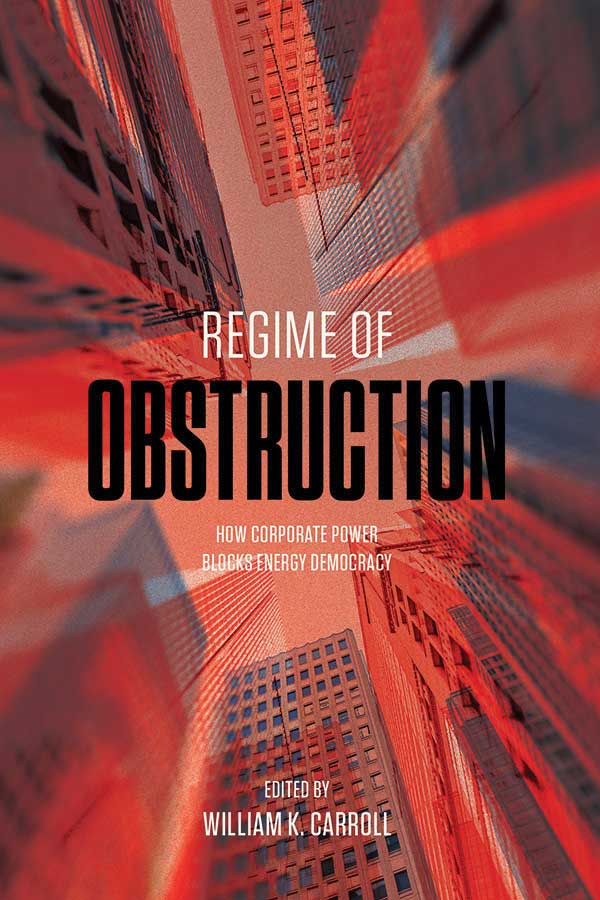
Edited by William K. Carroll Athabasca University Press 2021/$39.99/576 pp.
Humanity is only beginning to understand what it will take to create an environmentally and socially sustainable democracy, but two necessary transformations are already clear: The fossil fuel industry will eventually be dismantled, and growth-obsessed capitalism must be curtailed. Regime of Obstruction shows how difficult those transformations will be. The book is a comprehensive volume of academic work that will serve as a benchmark for students and scholars for years to come. For the general public, it is a challenging read that will reward solid effort with a deeper awareness of the power of Canada’s oil industry. For scholars, it is filled with primary research upon which further understanding can be built. A good journalist could extract many compelling articles for a general audience from this book.
Much credit is due the book’s editor, William K. Carroll, who brings together 18 chapters by two dozen scholars into a coherent whole. Carroll’s Introduction and Conclusion show how the wide-ranging chapters fit together into a comprehensive critique of “fossil capitalism.” Carroll is also the lead author of two chapters that dive deeply into ownership patterns in Canada’s oil industry. This unprecedented research shows that decision-making power is concentrated among a small number of people closely connected through interlocking corporate directorships. Calgary is the geographic centre of this network, and it is an insular clique: The only major connection to another industry is to the financial sector in Toronto. Carroll and his co-authors conclude that “a small group of actors has control over much of the sector, [representing] a massive centralization of economic power in the hands of private investors accountable only to themselves.” These chapters contain visual “maps” of the connections among major oil companies and their owners, including the names of families, individuals and investment funds. (Unfortunately the maps are colour-coded and the printing is in black-and-white, so they are difficult to fully decipher.)
Subsequent chapters show how this power threatens democracy in Alberta and across Canada. A chapter titled “Fossil Capital’s Reach into Civil Society” examines the industry’s interlocking directorships with universities, think tanks and advocacy groups such as the C.D. Howe Institute, the Conference Board of Canada and the Fraser Institute. These connections increase the industry’s influence on public discussions about taxes, royalties, climate change and regulation, because politicians and the media often refer to these groups as if they were independent. The fossil fuel industry does not speak through a megaphone but through many voices, all the better to confuse and convince the public.
The chapter by Laurie Adkin examines long-term patterns in research funding at Alberta’s leading research universities, revealing the disproportionate scale of funding for research related to the petroleum industry. She also addresses the industry’s influence on university governance. This combination of money and power means major university faculties are becoming research and training branches for the industry, and that universities are reinforcing Alberta’s commitment to fossil fuels rather than helping it face a post-carbon future.
Regime of Obstruction is a case study of the strategies used by giant corporations to subvert democracy and turn the state from public protector to private servant. At a time when corporate concentration is at dangerous levels, and multi-billionaires pad their wealth while the globe burns with inequality and environmental disasters, the research in this book is badly needed. It gives an indication of what we’re up against in our transition to sustainable democracy.
—Kevin Taft served as the MLA for Edmonton-Riverview from 2001 to 2012. His most recent book is Oil’s Deep State (Lorimer).

